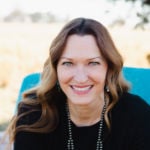
Dr. Stacy Trasancos explains how she talks to faithful Christians who try too much to prove their faith by science, and shows why fundamentalism can lead to bad theology.
Host: Claudia in Albuquerque, New Mexico, listening on Immaculate Heart Radio, you are on with Dr. Stacy Trasancos, your question please.
Caller: Oh hello, thank you, both of you. My question is, maybe coming the opposite way, I’m born and raised Catholic, became a scientist, I am a research scientist, never had a conflict between the two; and to the contrary, I was really shocked when I met people in person with a, say, more literalist interpretation of the Bible, but college-educated that, you know, thought that science could not be…
Host: Reconciled?
Caller: Science and religion could not coexist, and I was wondering if you’ve had this experience of speaking to people in that direction, people that have a very strong faith in God, very strong faith as Christians–and sometimes these can be Catholics too, that may not understand that there isn’t a conflict between the Catholic faith and science–but what is a good way to approach people that way? Would your two books be good for someone like that?
Dr. Trasancos: Okay, yeah, if I understood you right, you’re saying, what do you say to someone who is a practicing Catholic, or a faithful person, and a practicing scientist, and they think there is a conflict, they themselves have a perception of a conflict? There are a lot of people like that, you’re right. What I say to those people, well, sometimes I just ignore them; but what I say to them too is like, those people sometimes strike me as not confident in their faith. They seem like they really, really need science to prove their faith for them, and it’s not supposed to be like that.
We’re not supposed to use science to prove our faith. It’s like using the mashed potatoes to prove Mom exists. We are supposed to start with our faith and then look at science, and say, “Thank you, God, for science.” And so it’s just the wrong way.
And what you’ll see a lot of those people do, like in the intelligent design community, and among Young-Earth Creationists; they put themselves in the position of going out there and saying, “Nature did this, but God did a miracle here. Nature did this, God did a miracle there.” It’s kind of like a God of the gaps, in a way, and it’s a really dangerous theological position to put yourself in, to start saying you know when God made miracles and when He didn’t, just because you’re trying to fit your science with your faith. It’s wrong to do that.
And so I would, when I get a chance to sit down and talk with people like that, because it takes time, these are the kind of questions I put to them: it’s like, “Who are you to go back and say that you know–as if it were dogma–when God worked miracles over the evolution of all time?” We’re supposed to be humbler than that. We’re supposed to say, “This is what we know about science, this is what I pray in the Creed and believe in faith.” And then understand you’re not going to know everything in your life.
Host: Thank you very much, Claudia.


